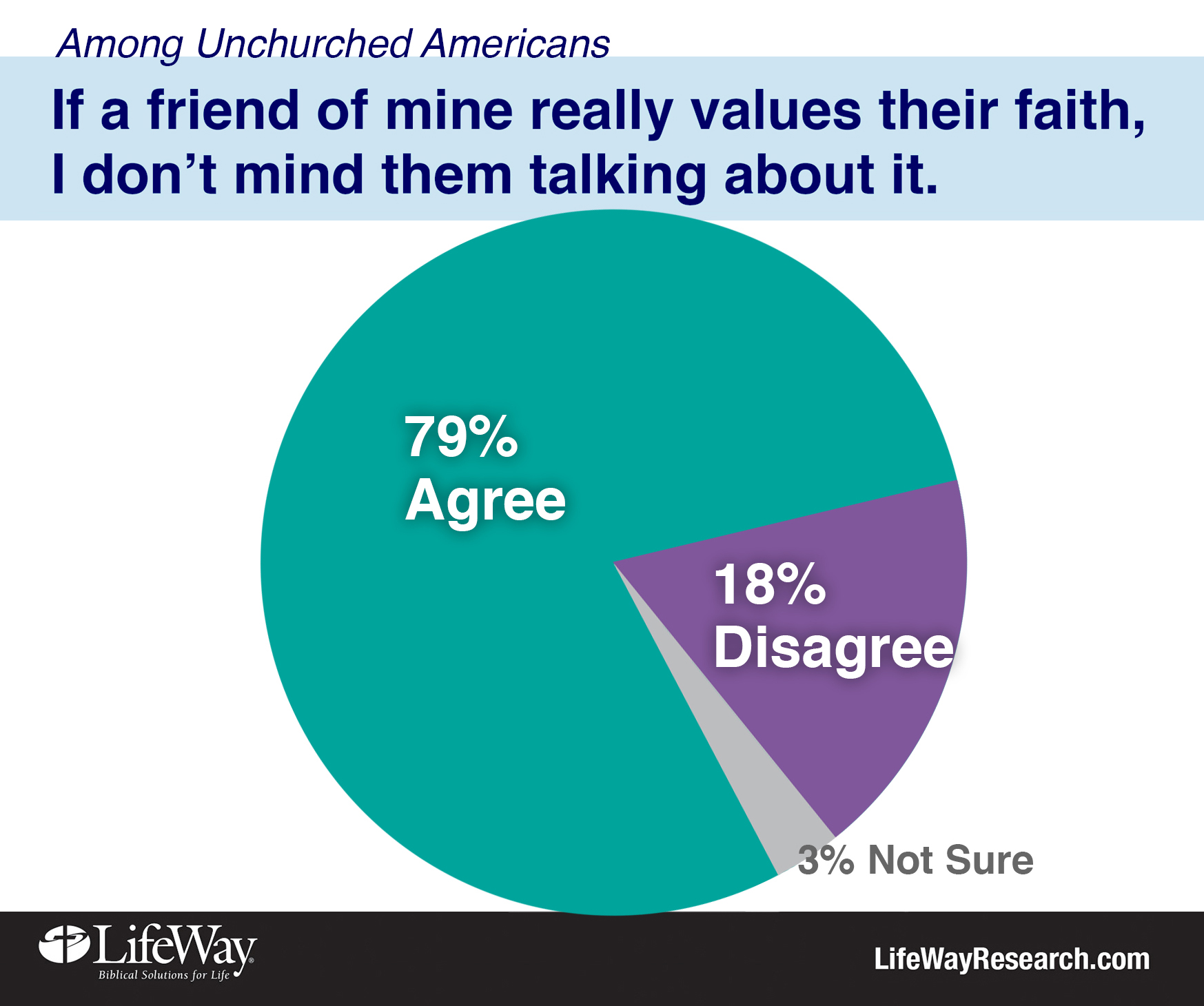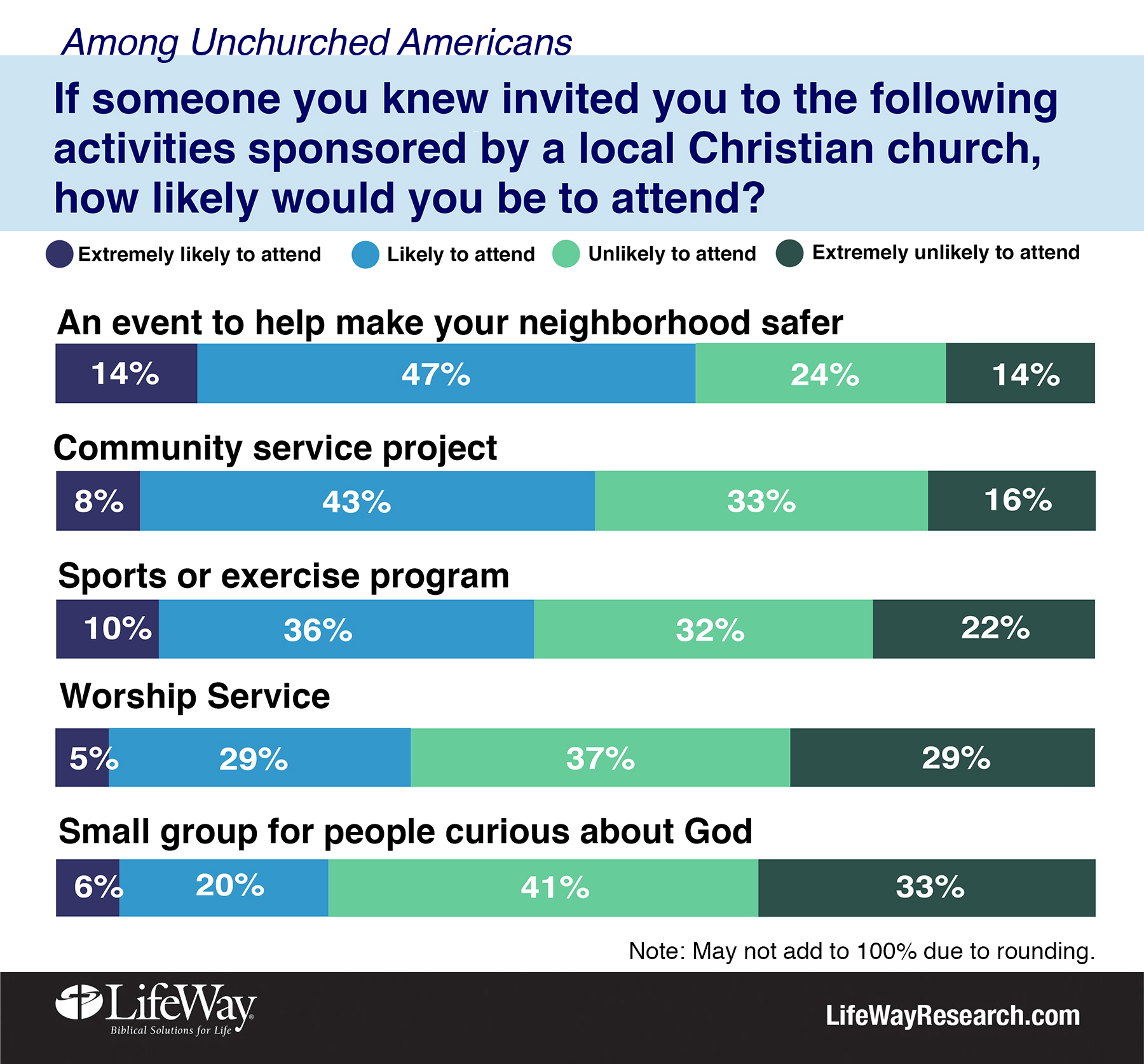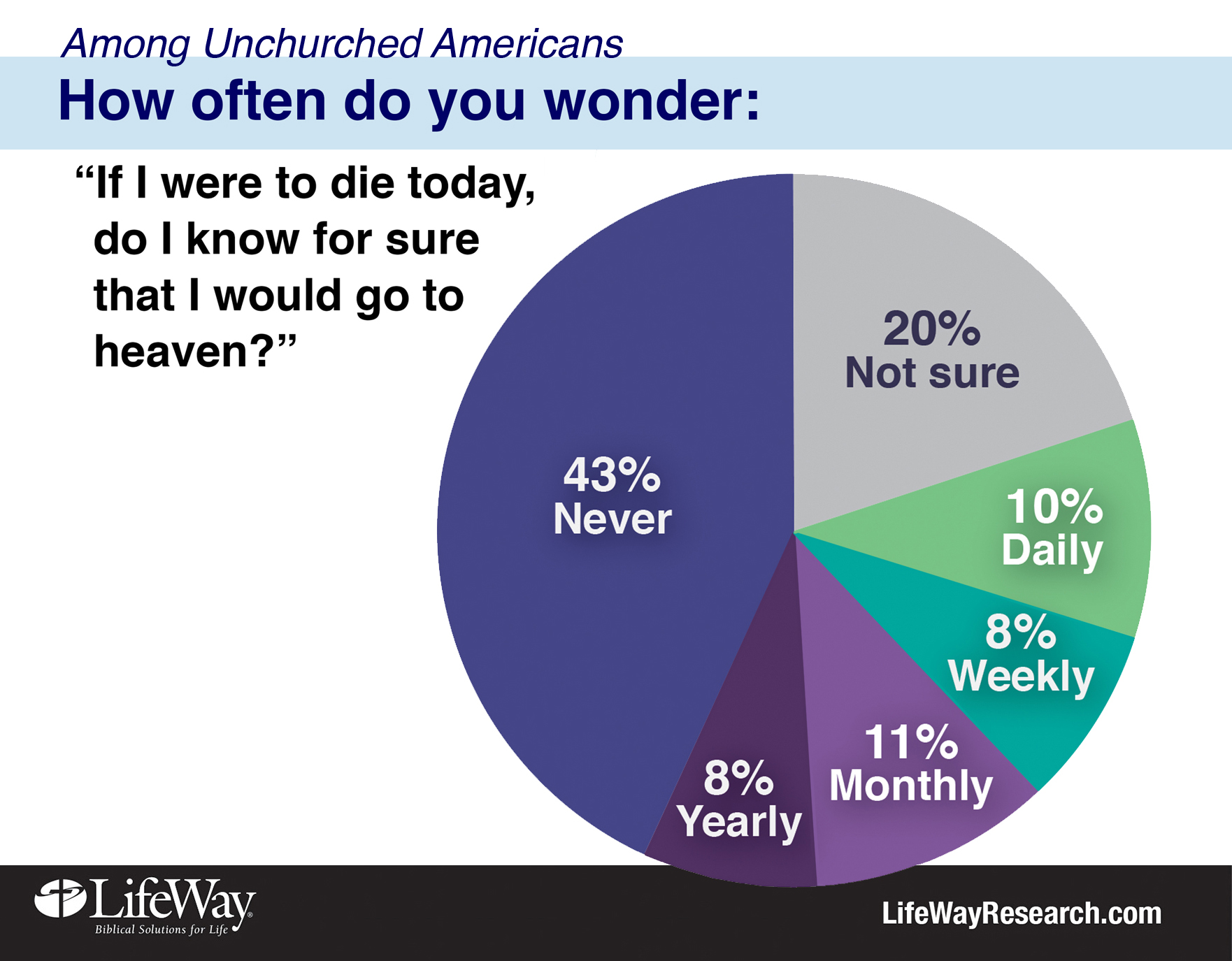Americans who don’t go to church are happy to talk about religion and often think about the meaning of life. They’re open to taking part in community service events hosted at a church or going to a church concert.
But only about a third say they’d go to a worship service, if invited by a friend. Few think about what happens after they die.
Those are among the findings of a new online survey of 2,000 unchurched Americans from LifeWay Research and the Billy Graham Center for Evangelism. In this survey, “unchurched” means those who have not attended a worship service in the last six months, outside of a holiday or special occasion like a wedding.
More than half of Americans who don’t regularly go to church identify as Christians. They are mostly indifferent to organized religion, said LifeWay executive director Scott McConnell.
“Unchurched Americans aren’t hostile to faith,” he said. “They just don’t think church is for them.”
Among their characteristics:
- Two-thirds (67%) are white
- Almost two-thirds (62%) went to church regularly as a child
- Just over half (53%) are male
- About half (47%) have a high school diploma or less
- About a third (32%) consider themselves nonreligious
- One in 5 identifies as Protestant, 1 in 4 as Catholic
But even though they aren’t interested in church, few of the unchurched are turned off by conversations about faith, said McConnell.
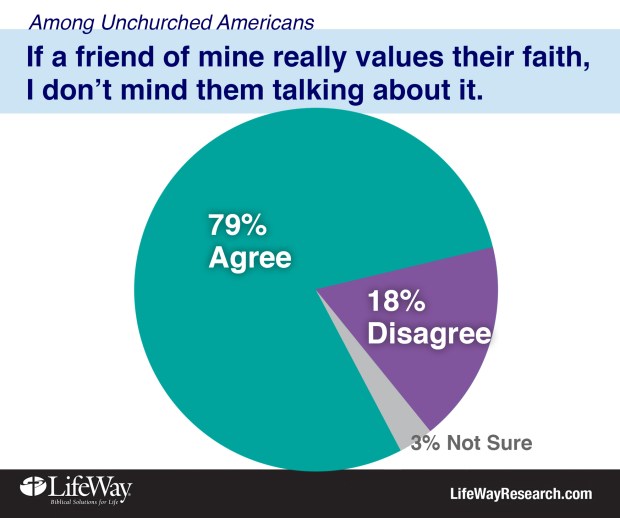
Almost half say they discuss religion freely if the topic comes up (47%). A third say they listen without responding (31%), while 11 percent change the subject.
Only about a third say someone has explained the benefits of being a Christian to them (35%).
The fear some Christians have of offending their friends by talking about their faith is unfounded, McConnell said.
“Unchurched folks are not being overwhelmed by Christians talking about their faith,” said McConnell. “If faith is important to you, then your friends will be interested in hearing about it.”
Researchers also asked about the types of church-related activities—outside of worship services—that unchurched Americans would be interested in attending.
About two-thirds say they would attend a church meeting about neighborhood safety (62%). About half would take part in a community service event (51%), concert (45%), sports or exercise program (46%), or neighborhood get-together (45%) at a church.
“Concerns for neighborhood safety and desire to express compassion to the under-resourced seem to be the biggest potential draws for the unchurched to get connected to a church,” noted Rick Richardson, professor of evangelism and leadership at Wheaton College and research fellow for the Billy Graham Center for Evangelism. “Invite unchurched people to those kinds of events, and many say they will attend.”
Fewer are interested in an invitation to a worship service (35%), recovery group (25%), or seminar on a spiritual topic (24%).
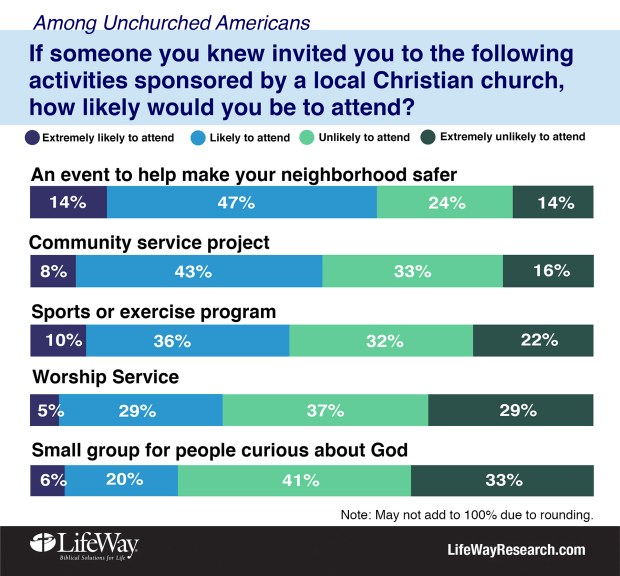
When it comes to church invitations, a personal touch works better than a sales pitch.
Half of unchurched Americans say a personal invitation from a friend or family member would be effective in getting them to visit a church (51%). Other methods, such as a TV commercial (23%), postcard (23%), church member knocking on the door (21%), or Facebook ad (18%) are less effective.
Researchers also asked unchurched Americans about the big questions of life.
About 7 in 10 agree there’s an ultimate plan and purpose for every person. One in 5 disagrees (19%). One in 9 isn’t sure (11%).
Almost 6 in 10 say it’s important for them to find their deeper purpose in life (57%). A third disagree (31%), while 1 in 9 isn’t sure (12%).
Few wonder, at least on a regular basis, if they’ll go to heaven when they die. Just under half (43%) say they never ponder that question. One in 5 isn’t sure the last time that question came to mind (20%). Three in 10 say they ask that question on at least a monthly basis (29%).
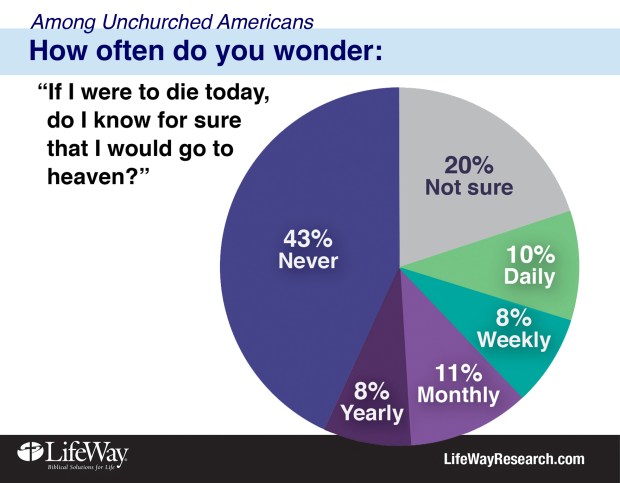
This lack of interest in the afterlife can pose a problem for Christians who want to share their faith, said McConnell. Many have been trained to ask questions like, “If you died tonight, would you go to heaven?”
That tactic might not be effective, said McConnell.
“If the only benefit of being a Christian is that you get to go to heaven, most unchurched people don’t care,” McConnell said. “It can’t be the only way of talking about faith.”
Instead, McConnell suggested those who want to share their faith talk about how their relationship with Jesus affects them in day-to-day life and discuss the benefits of being part of a church.
And be proactive, he said.
“Don’t wait for unchurched people to bring up the topic of faith,” he said. “It’s probably not going to happen.”
Methodology: A demographically balanced online panel was used for interviewing American adults. The study was sponsored by the Billy Graham Center for Evangelism at Wheaton College. The survey was conducted May 23 to June 1, 2016. Slight weights were used to balance gender, age, ethnicity, income, region, and religion. The sample was screened to include only those who have not attended a religious service in the past six months except for a religious holiday or special event such as a wedding or funeral. The completed sample is 2,000 surveys. The sample provides 95 percent confidence that the sampling error from the online panel does not exceed plus or minus 2.7 percent. Margins of error are higher in sub-groups.


